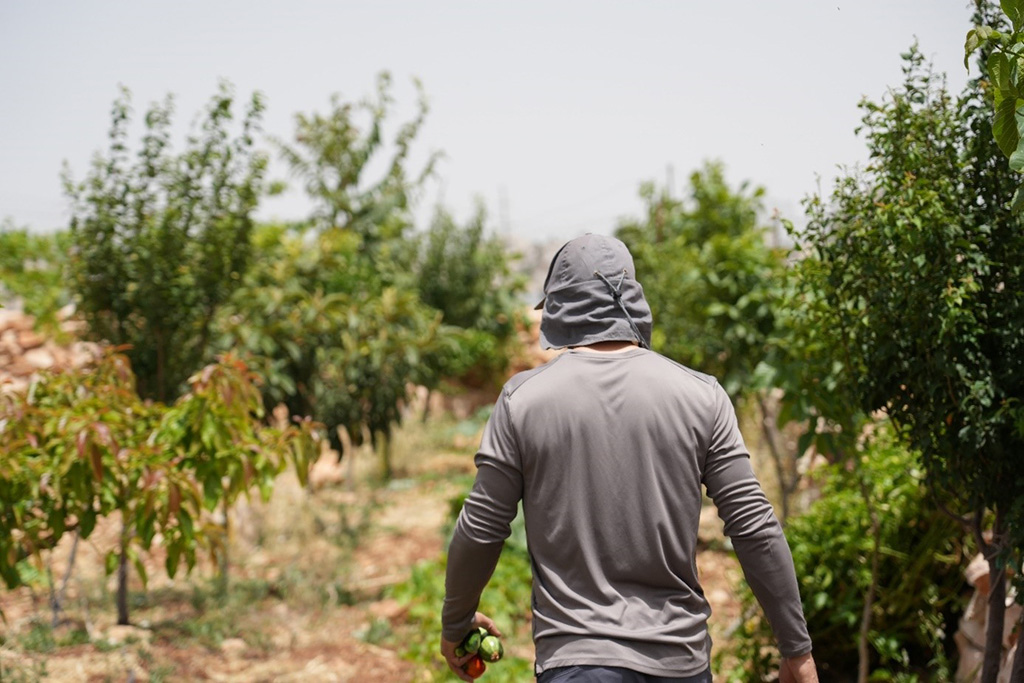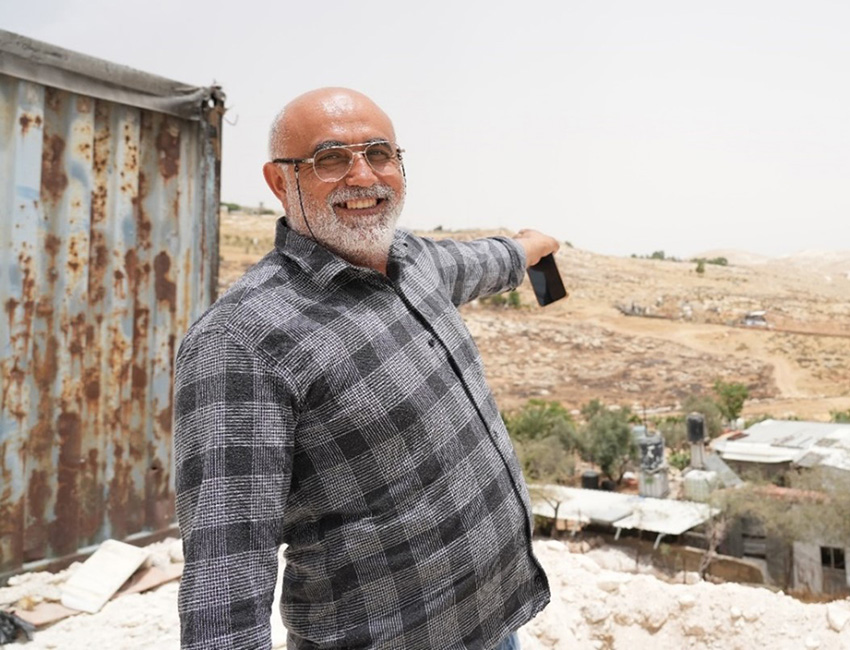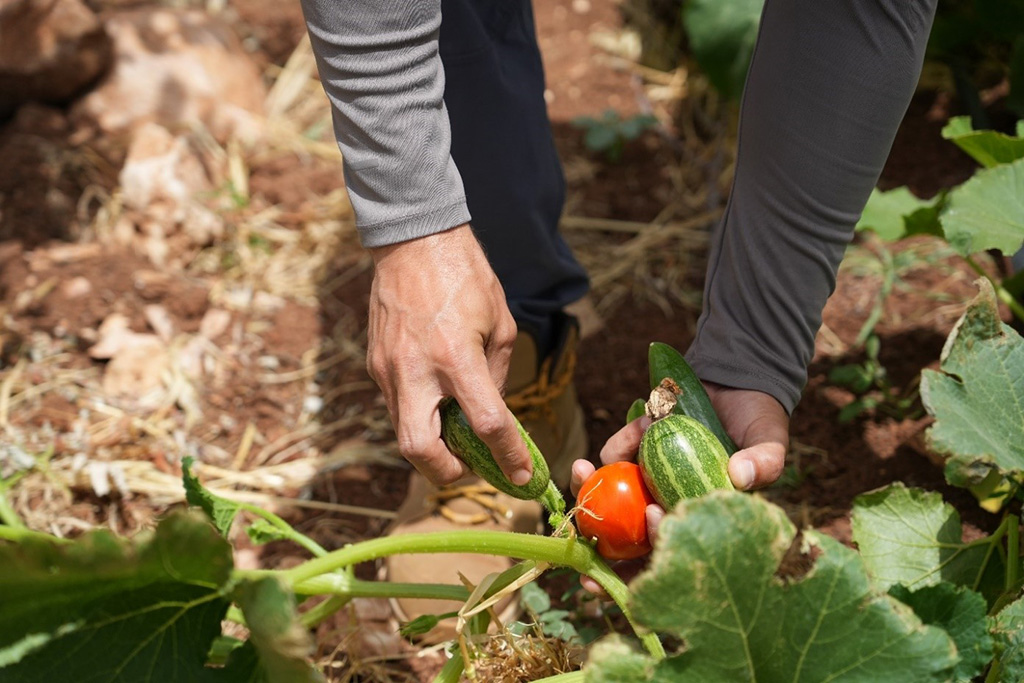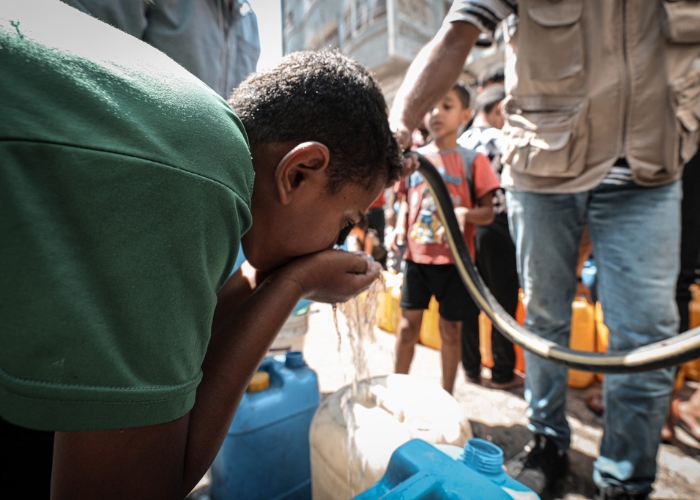Al-Issawiya is a small Palestinian village in northeast Jerusalem. The total area is around 2,300 acres. But Palestinians are only allowed to live on 8% of the land because the Israeli Government restricts construction work outside the pre-1967 historically urbanised area.
Most of the village’s urban area is fully under Israeli control, including lands confiscated by the Israeli Government where they have built a university, homes and a park.
The remaining land (known as Rawabi Al-Issawiya) is classed as Area C in the West Bank, meaning it’s also Israeli-annexed territory. These two parts of Al-Issawiya are split apart by the Annexation and Separation Wall, significantly restricting local Palestinian people’s access to their land.
Rawabi Al-Issawiya has long been left neglected because it’s so difficult to access. As a result, there’s still a lack of proper infrastructure including clean water and roads. Construction is also banned.
Some Bedouin communities have settled on a small part of the community, but landowners in Al-Issawiya have only started maintain their land again a few years’ ago.
Growing seasonal vegetables: leading by example
Mamoun was one of the first people to invite people to return to their land and start farming in Al-Issawiya in Area C. In his attempt to do so, he started cultivating his own land – setting an example for those who wanted to follow in his footsteps.
“I started growing seasonal vegetables on my land, such as cucumbers, tomatoes, courgettes, and I later planted olive and grape trees. I would take pictures and show the people around me the result of my work. That motivated them to do the same. These are Area C lands. We can’t build here, but the least we can do is take care of our lands and protect them from being stolen by settlers.”
Supporting a community of ambitious landowners
Action Against Hunger has supported Mamoun and landowners in Rawabi Al-Issawiya to build a new water networks and roads throughout the community.
While the roads aren’t paved yet, they’ve significantly improved access for hundreds of families – allowing them to reach their land more easily. This newfound accessibility has enabled families to fence and farm their land, opening up new opportunities for growth and development.
“Without water and roads, people wouldn’t come back to the area,” explains Mamoun. “So these are the first things I searched for. Action Against Hunger helped me open a few roads and get water to the community 5 years ago, and that was a real turning point. More and more people have started to visit the area, to get their lands fenced and revived.”

Returning to the land has also attracted the attention of young people. Many have found an escape in the mountains, away from the crowds of the town. For 25-year-old Khaled*, the land means a brighter future.
“I have found my passion and peace in planting and tending my land. I love it when my hard work results in perfect fruit and vegetables.”
The land has not only just produced plants, but also been a thriving environment to keep animals – a luxury not afforded by the limited space in the town.

For Abu Mahmoud, farming is part of Palestinian rural life.
“Being able to spend time taking care of my land, grow fruit and vegetables, and raise cattle is a true blessing.”
The people of Rawabi Al-Issawiya are now determined to open more roads and expand the water network further. This ensure that more of their land is accessible, but most importantly allow people to return to their homes.




